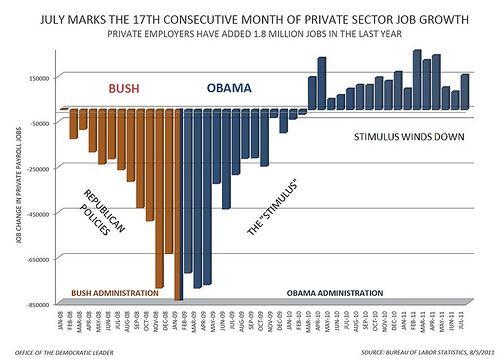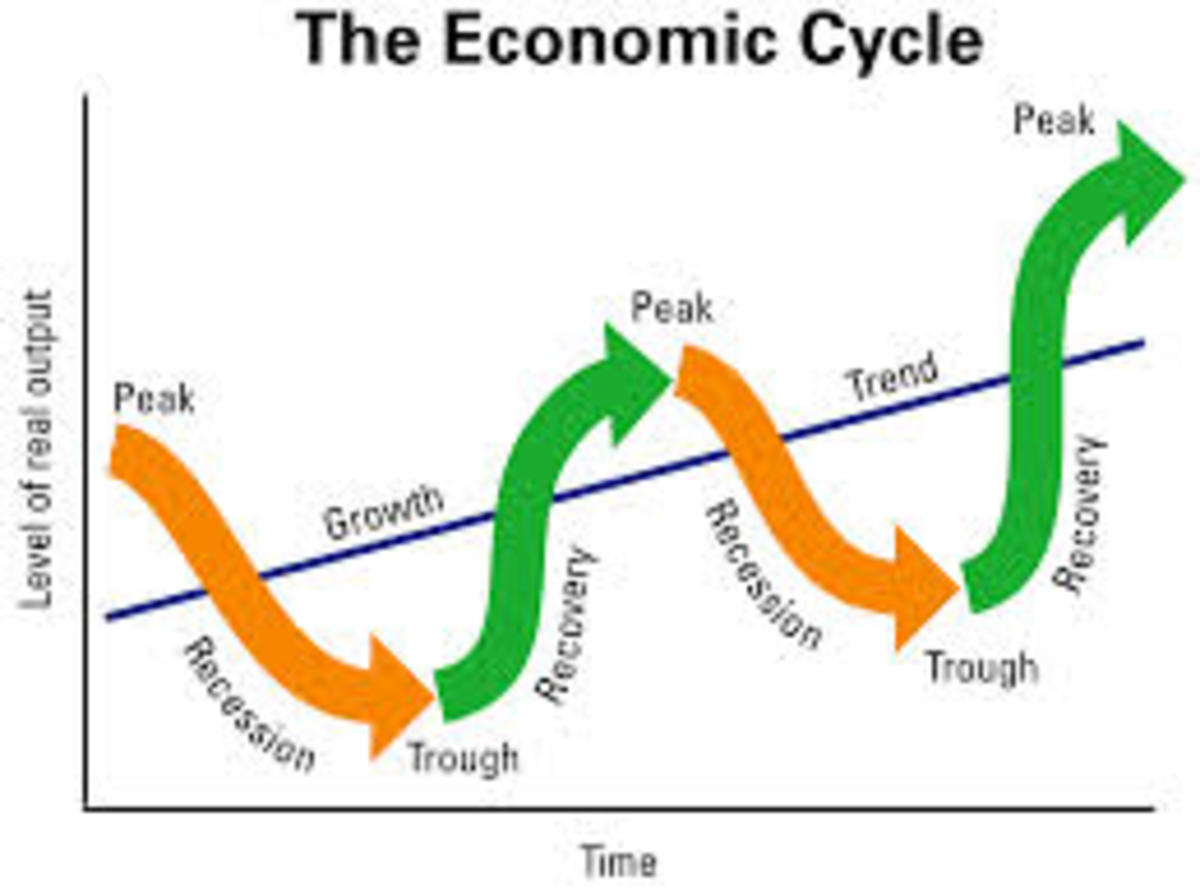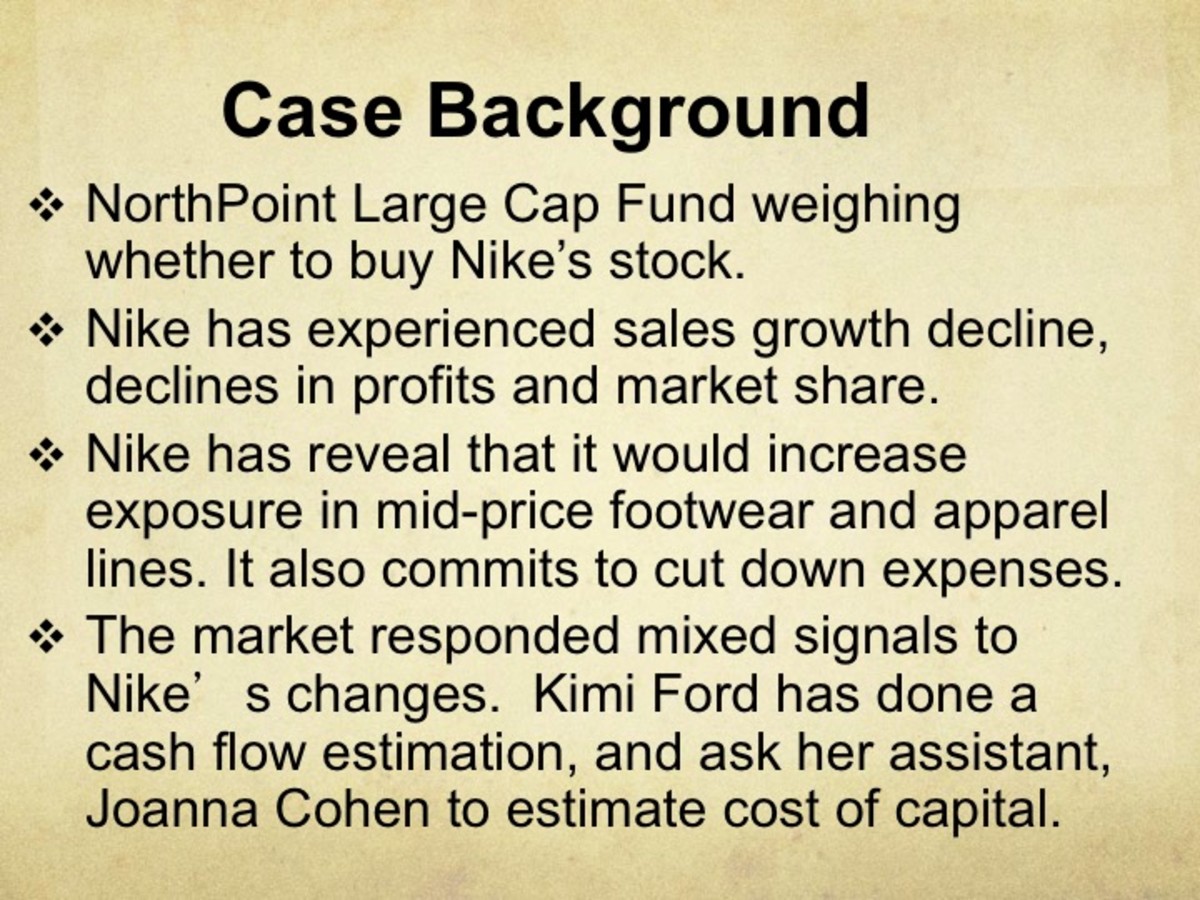Explaining the Economic Stimulus to a Child
There is much debate about whether or not the economic stimulus passed by Congress and signed into law by President Obama in 2009, has been successful. So just for a moment, imagine you had to explain the economic stimulus to a child.
Child: Hey Dad, I need your help. I’m supposed to write a paper for school about the economy. First, I need to know, what’s the stimulus package and why was it such a huge failure?
Dad: Well, the stimulus was a package of laws intended to help the country recover from the worst economic recession in over 80 years. The government spent money on college and job training, infrastructure projects like highways, railroads and airports to put people to work, and loaned money to the car industry to save hundreds of thousands of jobs. That included tax cuts so people can buy more consumer goods and to enable businesses to hire more people.
Child: Did any of it work? Did it even help the car industry?
Dad: Well, the car manufacturers had some of the best sales in years. They hired back a lot of employees and paid back the loans to the government.
Child: OK, so why was the stimulus was a failure?
Dad: Because it was hoped unemployment wouldn’t get above 8% and it’s around 9 percent now which is pretty high and a lot of people are still unemployed.
Child: What was the unemployment rate when the stimulus was passed?
Dad: In February, 2009, when the stimulus was passed, unemployment was at 8.2 percent.
Child: So you’re telling me the stimulus was a failure because it didn’t keep unemployment below 8% even though unemployment was already at 8.2% when the bill was signed during Obama’s first month in office.
Dad: Yep. Next question.
Child: Ok. How did Obama create this mess in the first place? How did the recession start?
Dad: The recession actually started in early 2008.
Child: You mean Obama’s policies were so bad that he retroactively started a recession a full year before he became president?
Dad: Exactly. In 2008, President Bush even tried to stop the Obama recession by passing his own economic stimulus which cost around $170 billion.
Child: Well that probably helped a little, didn’t it? What happened after that?
Dad: Unemployment increased from 5% to 8% before Bush left office. The finance and banking industries collapsed in September of 2008 which required hundreds of billions of dollars to bail them out. When Bush left office, 750,000 people were losing their jobs per month and we appeared to be on the verge of another Great Depression with 20% unemployment.
Child: Wow, 750,000 jobs lost a month! So how much worse did it get after Obama passed his stimulus bill?
Dad: After the stimulus was passed, the number of people losing their jobs declined each month until we started adding jobs again by the end of the year. Then in 2010, new jobs were added every month, sometimes as many as 200,000 in a month.

Child: How high did unemployment get?
Dad: Well, according to the Bureau of Labor Statistics, unemployment topped out at 10.1% in October, 2009, and has dropped down to around 9.1% since then. After unemployment peaked at the end of 2009, there were 106,772,000 people in the private sector work force. By July 2011, there were 109,156,000 people employed in the private sector, an increase of 2.38 million jobs. That’s good but it hasn’t made up for all the job losses from 2008 and the first few months of 2009.
Child: So when do they expect the recession to end?
Dad: Officially, the recession ended in June, 2009.
Child: So aside from unemployment how did the economy do under Obama?
Dad: Well, the Dow Jones Index measures how well the stock market is doing. When Obama became president, the Dow Jones was at 8100 points. During the first couple of months it dropped as low as 6600, but after that, it stayed on a generally upward trend for the next 2 years until it reached 12,800 in April 2011. It dipped below 11,000 after Congress threatened not to raise the debt ceiling, but it has started inching back up again.
Child: Um, Dad, I’m a little confused. Most of the job losses occurred before Obama became president or in the first few months before the stimulus could take effect. Since 750,000 people were losing their jobs per month before the stimulus passed, it looks like the stimulus stopped the job losses and started adding jobs again after a few months. Instead of unemployment reaching 20% like everyone expected, it got up to 10.1% before it started coming back down. The recession ended just 5 months after Obama became president and the stock market has been doing very well. So why is the stimulus considered a failure?
Dad: Well I think people are disappointed that the recovery has been so slow. Some people think we need another Ronald Reagan to lift us out of the recession like he did in the 80s.
Child: So what happened with unemployment during Reagan’s first 2 ½ years as president?
Dad: According to the Bureau of Labor Statistics, unemployment was at 7.5% when Reagan took office. After his first year it went up to 8.5% and by the end of his 2nd year it topped out at 10.8%. Then it began going back down. By August, 1983, this same point in Reagan’s presidency, unemployment was at 9.5%.
Child: Wait, that’s higher than it is now. It looks to me like Obama had a far worse recession than Reagan did, yet he turned the economy around in half the time and kept unemployment from getting as high as it did under Reagan. Explain to me again how the stimulus is such a colossal failure?
Dad: Don’t you have some Algebra homework to do?








